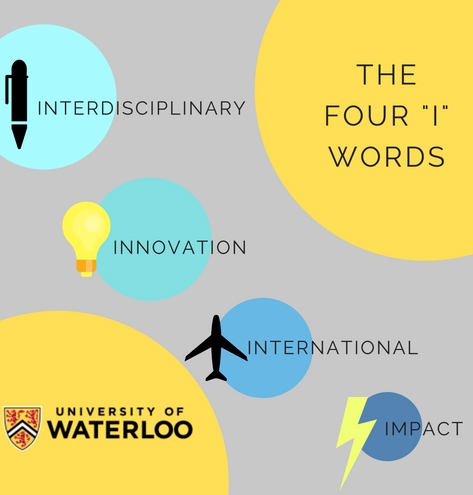
The University of Waterloo is quickly approaching its 60th birthday, so university President Feridun Hamdullahpur held his annual town hall to address where the university has been, where it is, and where it’s heading.
The president talked about the benefits of having a supportive federal government, noting in particular Prime Minister Justin Trudeau’s visit to Waterloo.
Hamdullahpur also emphasized the university’s commitment to its values and obligations while acknowledging “with unbelievable sadness” the people who are “fleeing war zones” among other geopolitical controversies.
Hamdullahpur expressed his pride in the strategic plan the university developed in 2013 and has been working off of since.
The hallmark of the strategy, he said, has been the transitioninto defining University of Waterloo’s unique trait as being more than a research university, but rather, an entrepreneurial institution.
The word “innovative” received mention throughout the entirety of the town hall proceedings, but to accompany it, Hamdullahpur came out with four new “I words” to use going forward in helping UW grow.
The first of these was “interdisciplinary,” whereby interweaving and complementary departments cooperate in creating solutions to pressing real-world issues such as climate change.
The second, of course, was innovation, which Hamdullahpur stated that he no longer wants doesn’t want to talk about, but rather, pursue.
The third word, said Hamdullahpur, is “international.”
While Waterloo is considered the most innovative university in Canada, the president said he looks to make it one of the most innovative in the world.
To achieve this goal, he said, would require a great deal of networking and recognition.
Finally, the three I’s culminate in one the final and ultimate goal: Impact.
The president was clear about the fact that he hopes to see some impact in all factors and aspectd of the university as a result of its interdisciplinary, innovative, and international nature.
After divulging these plans, the president addressed concerns about accessibility around the campus, online courses, and improper representation of Indigenous peoples in a question and answer session.





























